Turkish culture is distinct and fascinating, thanks to its unique customs and traditions. So, let’s talk about some interesting Turkish Customs that will blow your mind!
Turkish culture is distinct and fascinating, thanks to its unique customs and traditions. From the protective Nazar amulets to the ubiquitous tea-drinking culture, Turkish people have a variety of intriguing practices.
Whether it’s the grand Turkish breakfast, the tradition of throwing water to wish travelers well, or the unique etiquette of drinking raki, these customs offer a glimpse into the rich and diverse local culture. Join us as we explore some mind-blowing Turkish customs that will leave you amazed!
Skip Ahead To My Advice Here!
1. Turks Believe In The Custom Of Nazar (Evil Eye) A Lot
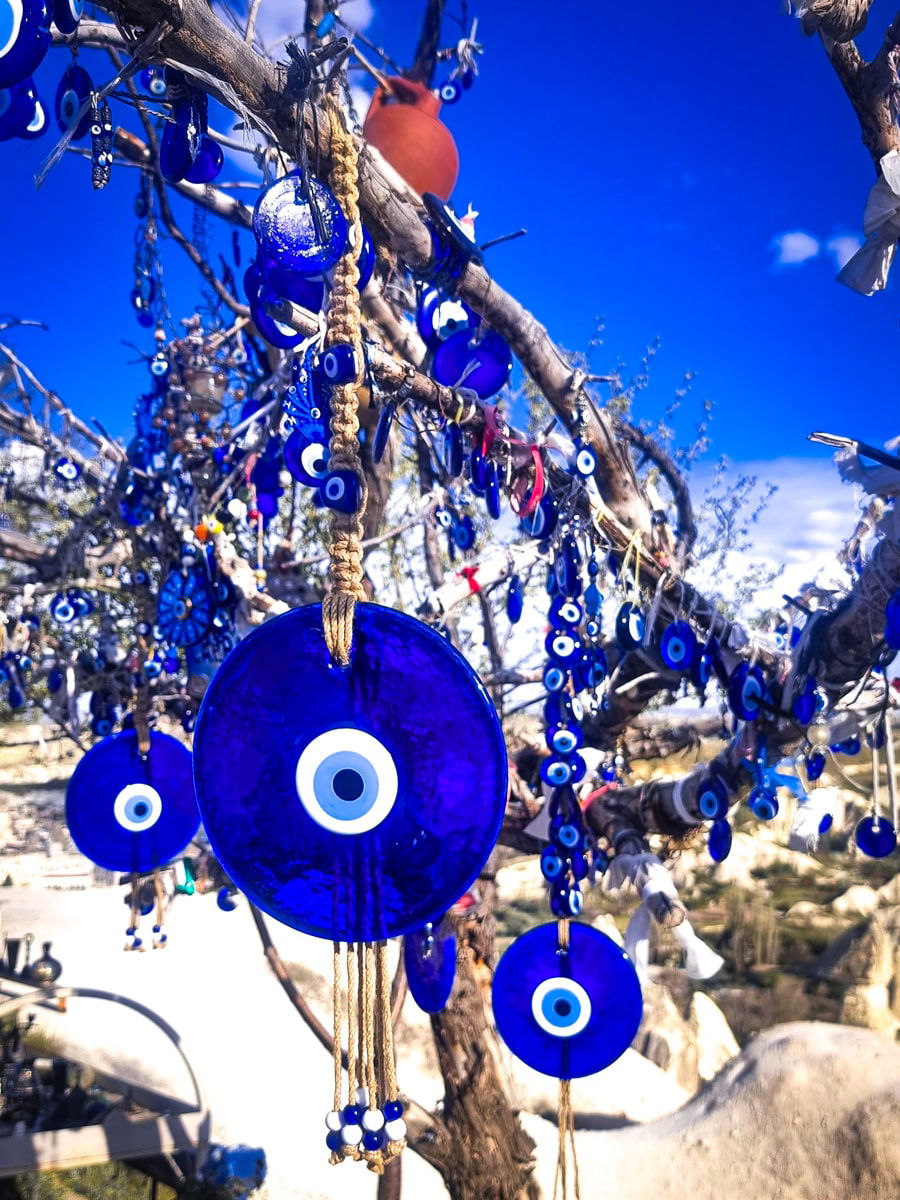
In Turkish culture and traditions, nazar, Turkish for evil eye, plays a significant role. You may see your Turkish friend wearing evil eye jewelry, such as a bracelet or earrings.
Nazar is an Arabic loanword that means “sight” or “surveillance.” The word refers to the malevolent glare, usually inspired by envy, that brings disasters upon someone. To protect themselves from such glares, Turks wear Nazar amulets. These evil eye amulets are teardrop-shaped and feature concentric circles in dark blue, white, light blue, and black.
Whether you believe in this tradition or not is entirely up to you. However, there’s no better souvenir than a cute little evil eye charm. And the best part is that they’re all so affordable. So, the next time you visit a Turkish shop, don’t forget to purchase a few charms as a thoughtful present for friends and family that may protect them from the evil eye.
2. Turks Drink Tea All The Time
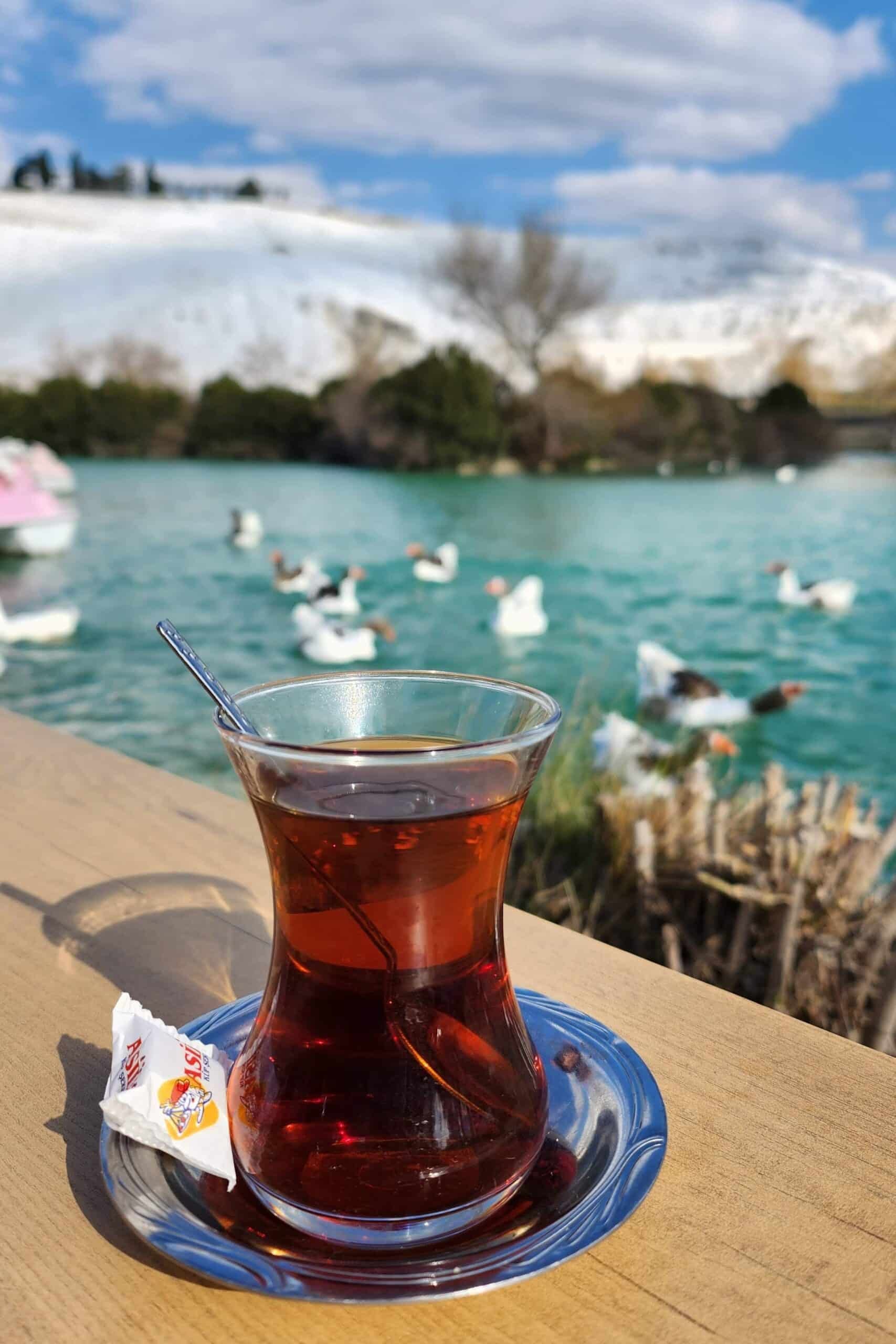
One of the most important things to know before visiting Turkey is how common it is to drink and offer tea. Most Turkish customs related to hospitality revolve around tea and coffee, the country’s second most consumed drink.
Interestingly, tea is a relatively new drink in the Turkish cuisine. Although it was imported to Turkey even before the arrival of the Turks, it wasn’t quite popular. Especially after the popularization of coffee during the Ottoman Empire, tea lost its appeal almost completely, and a unique coffee culture emerged. Today, coffee drinking is one of the most important Turkish rituals when having guests.
Tea became a popular drink during the early 20th century after the dissolution of the Ottoman Empire. Since the new republic was established on the remains of an empire that lost its glory long ago, there was significant economic instability and poverty. Therefore, the government promoted tea as a more affordable alternative to coffee. By the mid-20th century, tea consumption had surpassed that of coffee.
Today, Turks drink tea all the time and everywhere. When you visit a Turkish store, one of the first things they ask is: “Would you like to drink coffee?” Similarly, if you eat at a local restaurant, you can expect a few glasses of complimentary tea after your meal. These customs and traditions in Turkey hold great significance in Turkish hospitality and gastronomic culture.
3. Throwing Water To Bid Farewell To A Traveller
According to local customs in Turkey, throwing a glass or bucket of water behind someone going on a long journey brings them good luck.
When throwing the water, we sometimes yell: “Su gibi git, su gibi gel!” A rough and mot-a-mot translation of this saying would be “Go like water and come like water.” When we say this, we hope the person who leaves reaches their destination and returns safely and swiftly.
Of course, you don’t have to throw water before using this saying. You can use the phrase whenever you want to wish someone a safe journey. Even though it may appear to be one of the unusual Turkish traditions, it is actually a thoughtful and sincere way to express care for someone. It’s a gesture that signifies a wish for a safe and pleasant journey.
Brands We Use And Trust
4. Turkish Breakfast Is Huge
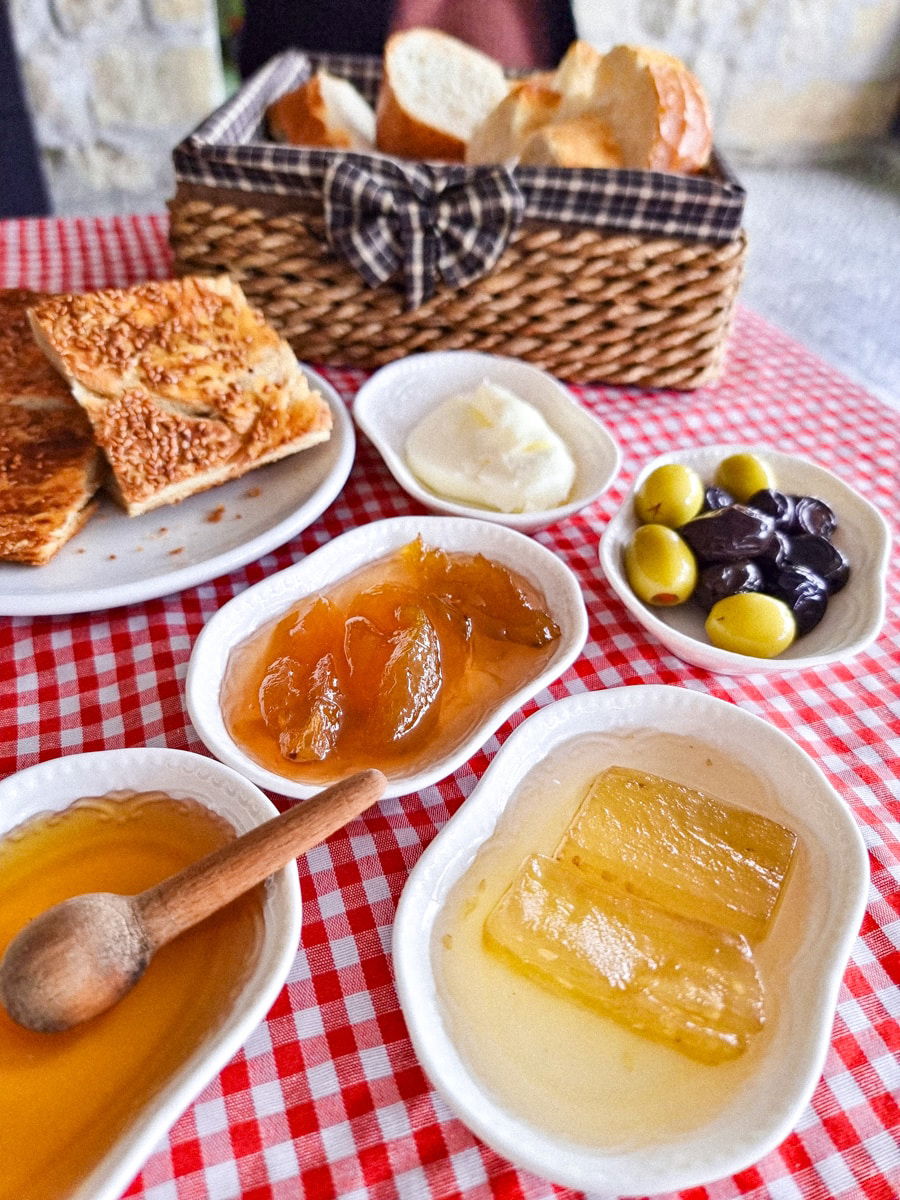
One of the most important things to know before going to Turkey is how rich and huge Turkish breakfast is. Traditionally, Turkish breakfast consists of salads, different types of jam, tomato sauces, paprika and cummin pastes, honey, kaymak cream, olives, types of cheese, omelet with salami, and regional pastries.
Of course, the contents of Turkish breakfast might depend on the city and area as well. It’s also customary to drink Turkish tea during and after breakfast. We usually start drinking tea with breakfast, and after we finish eating, we like to continue enjoying our tea on the balcony or in the living room. We usually don’t stop after tea and have a small cup of Turkish coffee to start our day energetically.
There are numerous cafés and breakfast places in tourist spots where you can savor a traditional Turkish breakfast. These venues often serve “Serpme kahvaltı,” a type of mixed breakfast with the traditional dishes I listed above. For your next trip to Turkey, discover a charming spot for breakfast with a stunning view and indulge in a delightful Turkish breakfast.
5. A Turkish Coffee Reading Can Tell You About The Future
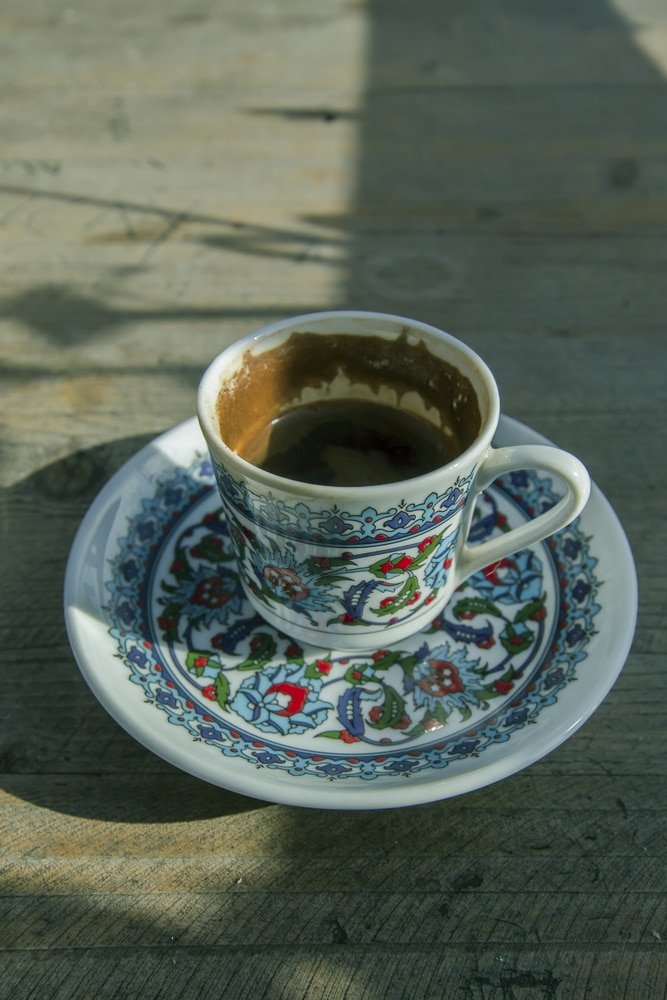
Turkish coffee is one of the most iconic parts of Turkish cuisine. Every part of coffee is valued and used, even the leftover coffee grounds.
Reading the patterns of coffee residue is called kahve falı, meaning coffee reading or coffee fortune-telling. While the majority may not believe in it, most people still practice this divination technique as a form of entertainment.
What’s great is that you don’t have to pay a professional fortuneteller for this. You can do it yourself as long as you know how to read the patterns. That’s why every Turkish friend group has a member interested in fortune-telling.
Before the fortune-telling part, you should prepare the coffee. As you can guess, the brewing process also includes various rituals and specific equipment.
Firstly, carefully brew your coffee in a traditional Turkish coffee pot, cezve. Once the coffee is ready, pour it into small Turkish coffee cups and serve it with Turkish delight or cookies.
According to a folk belief, when pouring coffee, one should consider the person who will drink it. If large bubbles appear on the surface of the cup, they indicate the presence of the evil eye.
The real fortune-telling session begins once the coffee is drunk. Place your cup upside down on its saucer and say: “Let my fortune match my state.” When the coffee is cooled, the fortuneteller will take the cup and examine the patterns created by the coffee grounds. Expert fortunetellers can explain and foresee many things regarding your personal or professional life. Of course, believing their divinations is all up to you.
6. Car Honking Is More Than Just Car Honking
When it comes to driving, Turks have their own habits and quirks, just like everyone else. For example, driving towards someone you know as a form of prank is quite popular among middle-aged Turkish men—it’s dangerous, so don’t do it. Similarly, blinking to warn other drivers about a speed trap ahead is illegal and also mustn’t be done.
One thing that is both harmless and widespread is honking. Turkish drivers honk for almost anything. They honk when you don’t drive your car immediately after the traffic light turns green – actually, they even honk when the light is red. When they see someone they know, they honk to greet each other.
Honking and driving around is also common during big celebrations, such as after their team wins a sports event or before a wedding.
Therefore, if you’re going to visit Turkey soon and planning to drive, be ready for lots of honking.
7. Turkish Raki Has Its Own Etiquette
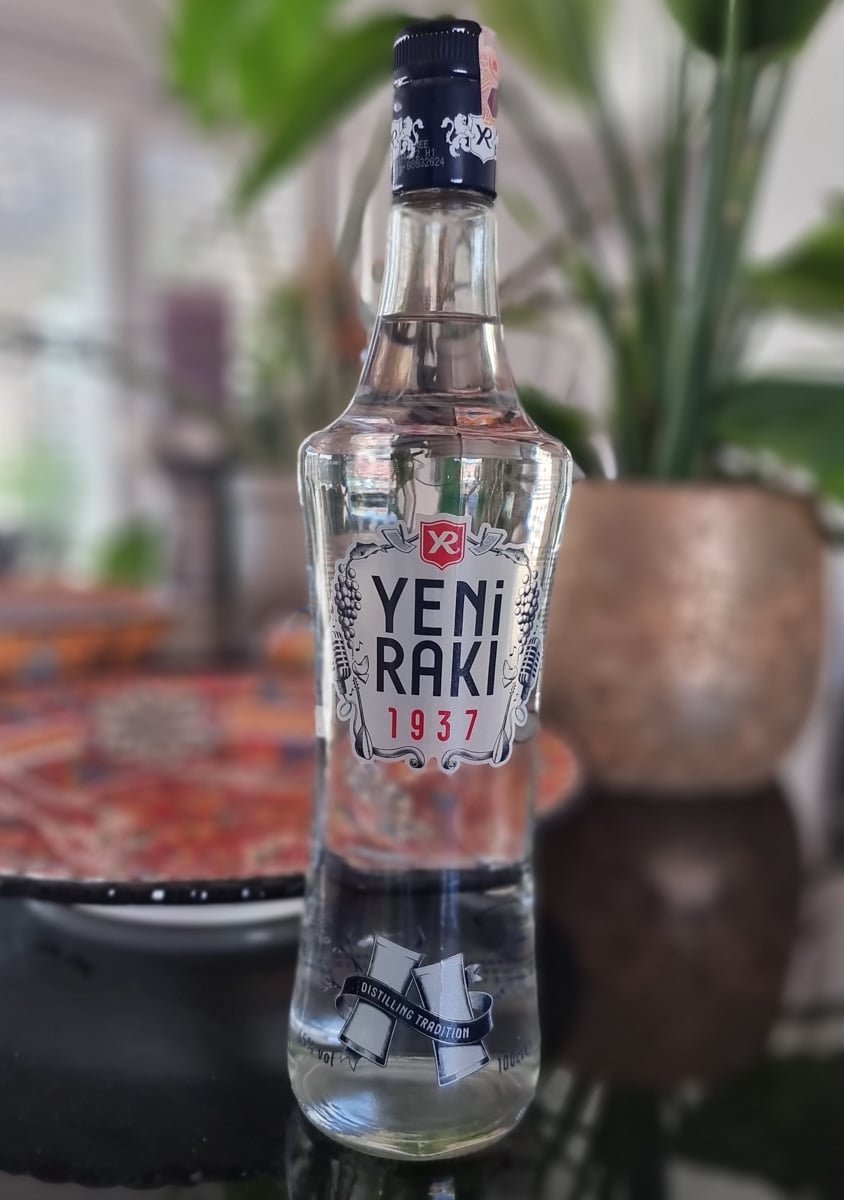
If you’ve ever been to Turkey before and familiarized yourself with Turkish customs and etiquette, you must know what raki is. If you don’t, we can call it raki, the national alcoholic drink of Turkey. This anise-flavored high-alcoholic spirit is made from distilled grape pomace and is typically consumed with mezze and side dishes.
Since drinking is often associated with celebrations and festivities, most cultures have established rituals for alcohol consumption. Obviously, Turkish culture is no exception – in fact, Turks may be a little too fond of the “ritual” part. There are literally dozens, if not hundreds, of rituals, sayings, proverbs, and “rules” around the so-called rakı âdâbı, or raki etiquette.
Of course, we can’t discuss every aspect of raki etiquette as it would be beyond the scope of this article. Nevertheless, I’ll do my best to paint a picture of what a traditional rakı masası (“raki table”)* would look like.
Dos and Don’ts of Raki Table
So, here are some dos and don’ts of raki table. Don’t worry; you don’t have to remember or follow all of these – even most Turks don’t follow these rules.
- Don’t drink raki too fast; getting drunk fast – at least before others – is frowned upon.
- Don’t talk about work or too serious topics; jokes, happy memories, plans, and sometimes political matters are some of the most popular topics at a raki table.
- Always have mezze on the table, even if you won’t eat it.
- Don’t drink other beverages, such as wine or beer, with raki.
- Talking too loud when drinking raki is frowned upon – raki is a gentleman’s (and gentlewoman’s) drink.
- Drinkers clink their glasses only once, usually when the first glasses are poured – if a new person comes, they can do it again.
- Although Turks don’t usually toast, you can say “Şerefe!” (“Cheers!”) or “Sağlığınıza” (“To your health!”) when clinking.
While there are other, lesser-known rules, the ones mentioned above are only the most popular ones. Of course, the purpose of drinking raki is to spend time with your friends. So, you don’t have to follow all these rules strictly. Clink your glasses as many times as you want and talk about whatever topic you feel like to!
* “Raki table” refers to more than the physical table; when someone says rakı masası, they mean the social gathering where friends or family, and sometimes both, get together around a large table to enjoy rakı along different mezze.
8. Sharing With Others During Holidays Is Essential
Generosity and sharing with others are deeply rooted in the Turkish culture. During the Seljuk era, there were various institutions specifically aimed at helping those in need without any monetary gain. In the Ottoman Period, Turkish cities had many vakıf and aşevi institutions, which served food free of charge every day. Modern Turkish hospitality and generosity come from this historic tradition of charity.
Although Turks don’t celebrate traditionally Christian holidays like Easter or Christmas, they have their own cultural holidays. Most of these holidays come from the Islamic tradition and are observed in unique ways. Nevertheless, all of these holidays have one thing in common: sharing with those in need.
A perfect example of sharing with others is the annual festival of Kurban Bayramı or Eid Al-Adha. During this festival, observant Muslims sacrifice animals and share the meat with those in need. During Ramazan Bayramı, also known as Eid Al-Fitr, it is a tradition and a religious obligation for Muslims to give a certain amount of money to someone in need.
Move This Adventure To Your Inbox & Get An Instant Freebie

No spam. Unsubscribe at any time.
9. “Suspended Bread,” Or Free Bread For Those In Need
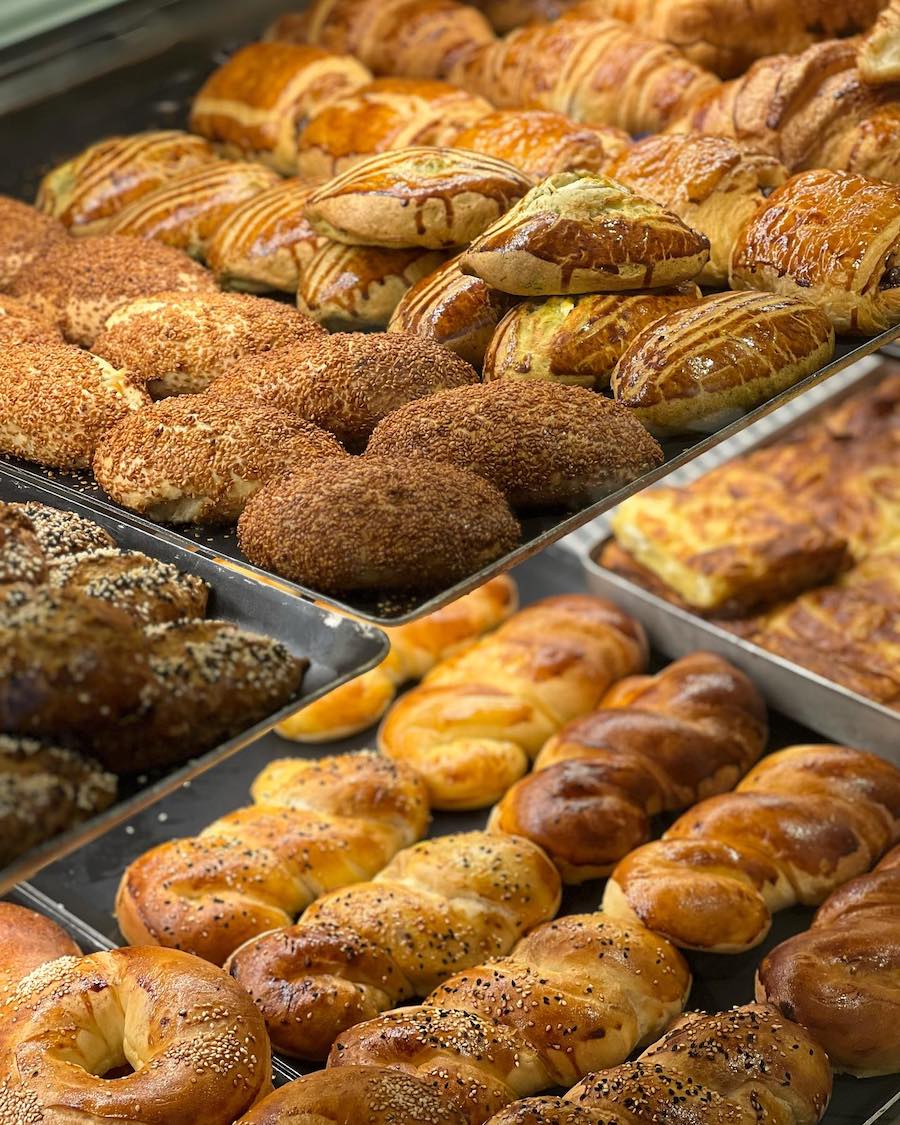
Another Turkish tradition centered around sharing with others is askıda ekmek, which can be translated into English as “Suspended bread.” With this tradition of generosity, those in need can access bread – and sometimes other sustenance – for free.
This practice dates back to the Ottoman Era when wealthy patrons prepaid bakeries for a specific amount of bread to be distributed to those in straitened circumstances.
Today, most Turkish bakeries sustain this tradition. Usually, charitable customers prepay the price of a certain amount of bread to be donated. And sometimes, the bakeries also contribute and donate a certain amount themselves.
10. We Take Off Our Shoes Not Only When Visiting A Mosque
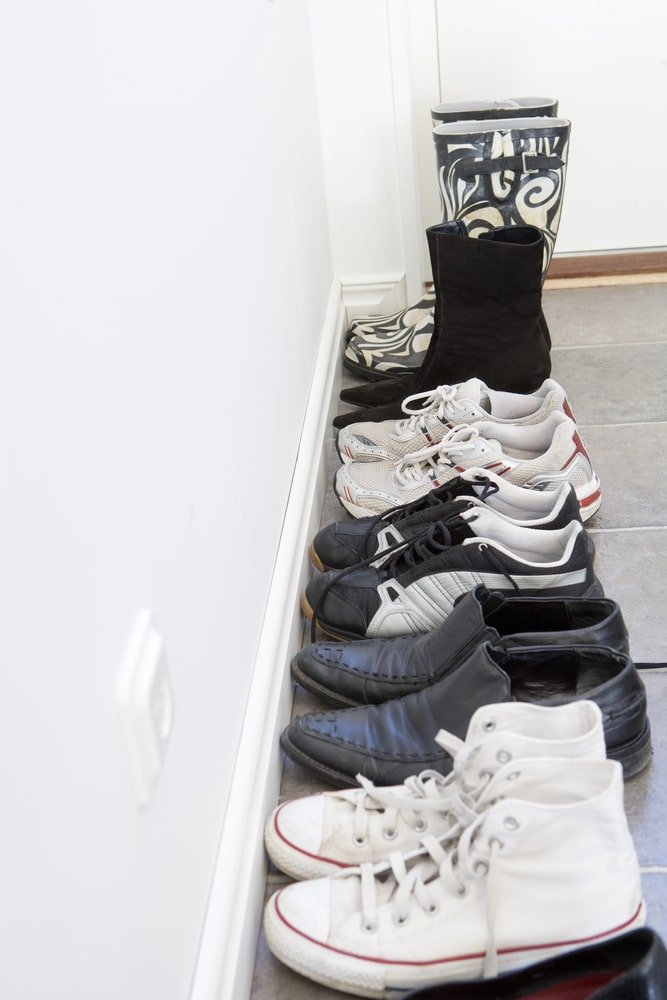
Indeed, removing shoes before entering a place is not uncommon; in certain societies, it is customary. However, compared to most parts of the world, and especially to the anglophone world, taking off shoes isn’t optional in Turkey.
You must take off your shoes almost every time you visit someone’s house unless the homeowner lets you outright tell them that there is no need to remove them.
Usually, your host will provide you with slippers to keep your feet warm and make you feel more at ease walking around the house.
- Best Hotels In Cappadocia, Turkey
- Myths & Misbeliefs About Turkey
- Best Restaurants In Bodrum
- Best Places To Visit In Turkey For Every Type Of Traveler
- How To Make Turkish Coffee
- Hotels In Cappadocia, Turkey
- Best Food Tours In Istanbul
- What To Pack For Turkey
- How To Get From Istanbul To Cappadocia
- Cappadocia Hot Air Ballon Ride Tips
- Greek Island Day Trip From Southern Turkey
- Turkish Hammam Tips To Know Before You Go
- Do People Speak English In Turkey?
- Airalo eSim Review – Mobile Data In Turkey & Beyond

